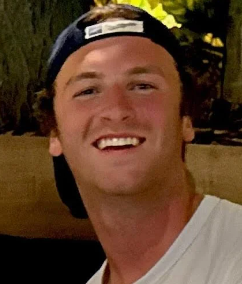
 November 28, 2016 Press Contacts Laura Green Communications Manager 202.314.1783 [email protected] Museum Press Kit MUSEUM...
November 28, 2016 Press Contacts Laura Green Communications Manager 202.314.1783 [email protected] Museum Press Kit MUSEUM...
November 28, 2016
MUSEUM STATEMENT ON THE RISK OF GENOCIDE IN SOUTH SUDAN
WASHINGTON, D.C. — The United States Holocaust Memorial Museum expresses its grave concern over the increasing risk of genocide in South Sudan. The rising use of hate-speech by the country’s leaders, the targeting of ethnic minorities and other civilians by government and allied forces, and the proliferation of ethnically-based armed factions are all serious early warning indicators of potential genocide. These threats come in the context of a three-year conflict that has already killed tens of thousands, displaced more than 2 million, and has created a humanitarian emergency affecting over 4.8 million South Sudanese.
The Museum notes the recent report by the United Nations (UN) Panel of Experts for South Sudan, which stated that “The prospects for an even more catastrophic escalation of violence at the outset of the dry season in November and December are high. Armed actors on all sides continue to demonstrate in word and in deed that they are preparing for just such an escalation.”
The Museum also notes the alarm raised by the UN Special Advisor for the Prevention of Genocide, Adama Dieng, who expressed dismay that “inflammatory rhetoric, stereotyping and name calling have been accompanied by targeted killings and rape of members of particular ethnic groups, and by violent attacks against individuals or communities on the basis of their perceived political affiliation.”
The most recent political conflict began in December 2013 when soldiers loyal to President Salva Kiir Mayardit and former Vice President Riek Machar Teny clashed in the capital Juba. The political dispute quickly took on tribal dimensions as the two leaders resorted to mobilization of their respective ethnic groups, in what the UN has termed, “a zero-sum confrontation between the Dinka and non-Dinka tribes in many areas, characterized by the targeting of civilians on a tribal basis.”
A peace agreement was signed in August 2015 and a Transitional Government of National Unity formed in April 2016, but renewed clashes between government and opposition troops in Juba in July prompted Riek Machar to leave the country, making implementation of the peace agreement uncertain. Targeted attacks on civilians have spread to parts of the country previously unaffected by the war, engulfing more communities in violence and prompting the proliferation of armed ethnic militia.
“The current conflict and resulting humanitarian crisis in South Sudan are wholly man-made,” said Cameron Hudson, Director of the Simon-Skjodt Center for the Prevention of Genocide. “What began as a purely political dispute over leadership of the country has been purposefully manipulated to sow distrust between ethnic communities. It is up to political and community leaders to actively combat hate speech and make it clear that violence against civilians will not be tolerated.”
It is first and foremost the responsibility of sovereign governments to protect all civilians, regardless of creed or political affiliation. The South Sudanese government must immediately and demonstrably halt attacks against civilians—particularly by its soldiers and allied militia—and denounce divisive rhetoric and ethnically-charged hate speech.
Another critical step to rebuilding trust between communities, and one that can be taken immediately by the current government, is to end the cycle of impunity for violence against civilians. The South Sudanese government has reportedly convicted 60 soldiers for murder and looting in Juba in July, but countless other crimes committed by security forces and allied militia have gone unpunished. It is imperative that the South Sudanese government commit to transparently investigate and try all cases of violence against civilians.
As leadership transitions occur in the United States, at the UN, and within the UN Mission in South Sudan itself, the international community must not lose sight of the ongoing threats to civilian security in South Sudan. We must not only remain vigilant, but actively work to stop the commission of genocide in the world’s youngest country. This includes working with local and regional parties to make good on past commitments to deploy a Regional Protection Force, to augment and enhance the civilian protection capacities of the existing UN Force, as well as to operationalize the Hybrid Court for South Sudan, as called for in the internationally-supported, August 2015 peace agreement.
“There is still time to act,” Hudson said. “Taking steps to protect civilians, counter incitement, combat impunity, and promote dialogue are essential to preventing genocide in the short-term and repairing trust between communities in the long-term.”
A living memorial to the Holocaust, the United States Holocaust Memorial Museum inspires citizens and leaders worldwide to confront hatred, prevent genocide and promote human dignity. Its far-reaching educational programs and global impact are made possible by generous donors. Learn more at ushmm.org.
###
Tags:
Content from United States Holocaust Memorial Museum
Originally published at https://www.ushmm.org/information/press/press-releases/museum-statement-on-risk-of-genocide-in-south-sudan
originally published at HUMAN RIGHTS - USA DAILY NEWS 24

